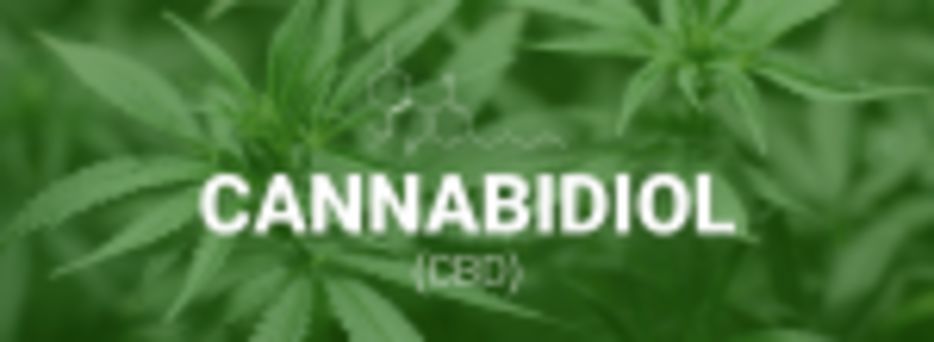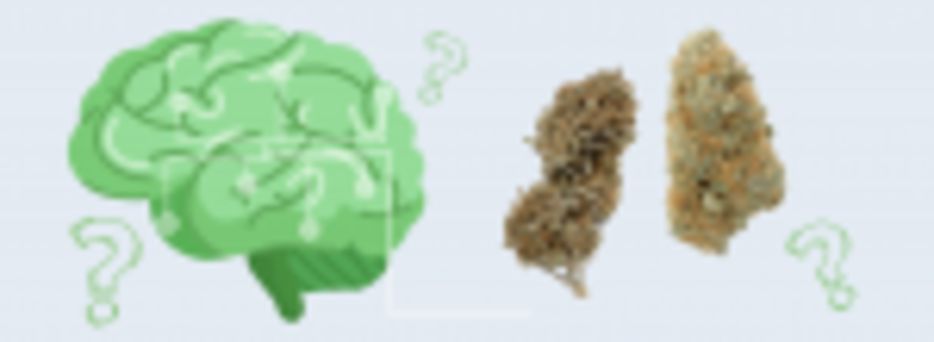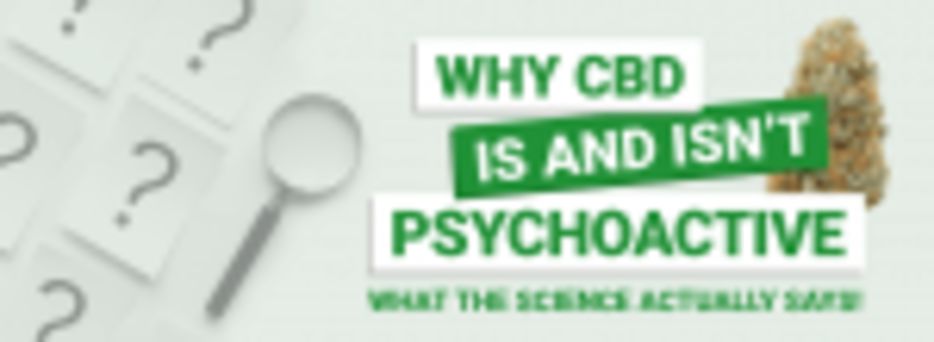Contrary to what you might’ve heard…CBD is psychoactive.
It may not be as active as THC, sure. But the reality is that CBD can have powerful mental effects — countless users have found it calming, uplifting, energizing, and more. That’s because CBD subtly activates many of the brain’s most important receptor systems.
What does this mean for you? All sorts of good stuff! Here’s an outline:
- Is CBD Psychoactive?
- How Does CBD Affect Your Brain?
- CBD & Hope
- Why Do So Many Companies Say CBD’s Not Psychoactive?
Is CBD Psychoactive?

In their attempts to combat consumer concerns, even great CBD companies often get the answer to this very simple question wrong. Check out the FAQ section of a company’s website and you might read something like this:
“CBD won’t get you high. In fact, CBD is completely nonpsychoactive, which means it has no mental effects.”
That’s not quite true — thankfully. Just imagine if CBD didn’t act on the mind to confer hope, reduce anxiety, and instill calm. Those are some of the CBD compound’s most cherished qualities — and they are all psychoactive, by definition. Just take a look, per Mirriam-Webster:
Psychoactive: Impacting the mind or behaviour.
In short, CBD’s mental effects aren’t a bad thing. They could be just what you need to get through the day with energy and joy. Many people who take CBD claim it reduced their anxieties or eased their stresses. It clearly affected their mind and their behaviour. And that pretty much means one thing: CBD pretty much fits the definition of psychoactive.
Clearly there’s a pretty big difference between what some companies claim and what CBD users actually experience. What’s causing it? Probably a few different factors. For one, people gravitate towards simple, black and white solutions. And they also tend to stereotype psychoactive substances out of lingering fear.
But all you plant enthusiasts and psychonauts out there will know there’s nothing to fear here. Far from being detrimental, CBD’s psychoactive nature is one of its biggest assets. And even though CBD is psychoactive, it won’t get in the way of things like staying focused at work or driving your car like stronger substances would. It might even make the mundane parts of life more enjoyable.
How Does CBD Affect Your Brain?

Back in the day, scientists thought CBD only bound itself to certain cannabinoid receptors called CB2 receptors. These little cellular satellites are located throughout the peripheral body and its most important organs, so their activation doesn’t cause a ‘high.’
It turns out CBD can bind to the brain’s more sensitive CB1 receptors, too. According to newer, more accurate research, CBD changes the shape of the brain’s psychoactive receptors. This process allows more endocannabinoids to bond to their receptor sites. Think of it this way: CBD indirectly allows other important molecules, including THC, to improve our neurological function.
Another way CBD impacts the brain? Studies show that it can actually increase the productivity of our brain’s mitochondria. This is vital because the mitochondria are in charge of providing fuel for numerous cognitive processes. We’d say that the efficiency levels of such a powerful fuel source are pretty significant.
CBD & Hope
CBD has also been reported to help people with depressive symptoms. Once again, its effects are subtle and seem to start with small improvements in serotonin activity in the brain. As Dr. James Taylor, an anesthesiologist who advocates CBD for his patients, explains, “[patients come back and say they are feeling more hopeful.”
Hard to quantify, perhaps — but still true. Taken consistently, CBD may help people feel less depressed and experience more hope.
And hope tends to trickle into many other areas of life. “With hope, [patients] may be more willing to engage in yoga, in exercise, with things they need to do to get to optimal health.”
Another way CBD may improve one’s mood? It’s been proven to increase the number of endocannabinoids (eCB’s) our bodies naturally produce. eCB’s are important molecules that help regulate our mood and emotions; they’re even responsible for that blissful “runner’s high” you might get after a long workout.
Why Do So Many Companies Say CBD Isn’t Psychoactive?
It’s no secret that marketing campaigns are an important part of any company’s success. This, however, doesn’t mean that every company misinforms on purpose. Referring to CBD as non-psychoactive is a great way to get the “on edge” consumers to decide that it’s both beneficial and safe. We at MMJDirect believe that it is more important to completely inform you in regards to the products we sell.
Unfortunately, the term psychoactive has been tied to many other drugs that have a poor stigma. As we mentioned before, it simply means “affecting the mind or behaviour,” and these effects come in all different shapes and sizes. The subtle effects that CBD has on us aren’t overly shocking to our system: quite the opposite actually.
Many users report their pain levels, irregular mood, and anxiety troubles as “mindlessly gone.” There wasn’t necessarily a conscious difference, but the physical and mental benefits were impossible to miss.
Our bodies produce cannabinoids naturally and some of us have a very balanced system. But that isn’t always the case. How do you know when you are hungry? It’s simple: the stomach aches, energy decreases, and sometimes the mind becomes agitated and confused. When you finally consume food there are messages sent to the brain and you finally relax without becoming “high” or consciously euphoric.
The same is true with our endocannabinoid system, but the detection for hunger is commonly missed or written off as a separate issue. Just like physical hunger, once phytocannabinoids (cannabinoids from plants) are consumed, they go in search of receptors.
CBD’s messages are sent all throughout the mind and body without your conscious awareness — but with a little bit of psychoactivity intact.




